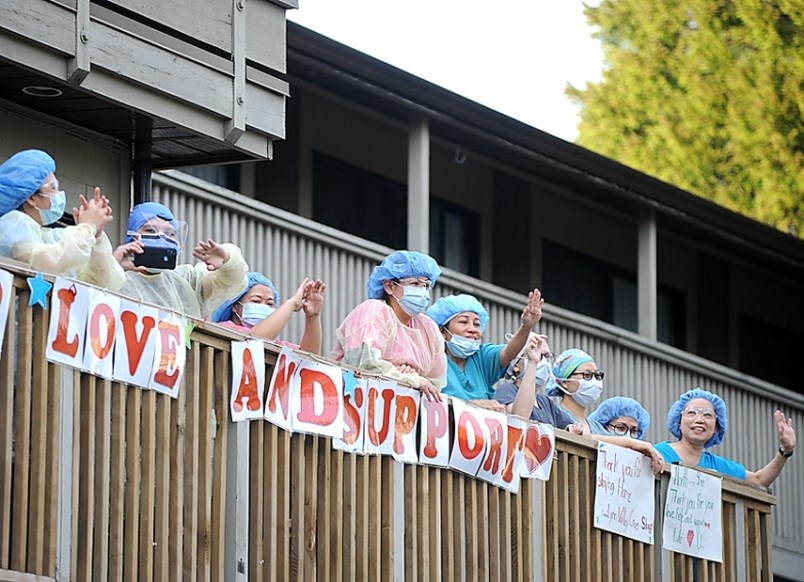Care aides who were on the front lines of the COVID-19 outbreak at North Vancouver’s Lynn Valley Care Centre are now in the midst of a unionization vote.
The Hospital Employees Union filed an application to unionize with the Labour Relations Board, after a majority of the 120 care aides working at the North Vancouver care home signed union cards.
Care aides will now vote on whether to unionize in a mail-in ballot. The vote is expected to wrap up in about three weeks.
Working through the COVID-19 outbreak at the first long-term care facility in British Columbia to be hit with the virus has been a “challenging and traumatic experience” for many of the staff, said Jennifer Whiteside, secretary business manager for the HEU.
Over 50 elderly residents at the care home contracted the virus during the outbreak, and 20 of them died. Twenty-six staff members also contracted the virus.
“They’ve really been through a war here,” said Whiteside. “They deserve to be recognized for the incredible job they’ve done.”
Care aides at the Lynn Valley Care Centre are employed by Pro Vita Care Management – which subcontracts their work to the private owners of the care home.
Care aides at the facility used to be represented by HEU but lost that after the labour contract for the care home was given to Pro Vita in 2012.
Two other subcontractors supply housekeeping and dietary staff at the care home. Neither are unionized.
Registered nurses and licensed practical nurses are represented by the BC Nurses’ Union.
Having four different organizations represent different staff at the facility is less than ideal, said Whiteside.
“That absolutely has an impact on how communication flows throughout the site.”
Whiteside wouldn’t comment directly on the wages earned by care aides at Lynn Valley Care Centre but said in general staff working for private subcontractors are paid the lowest wages in the sector. Those care aides have often had to “chase up a decent living” by working at multiple sites, she said.
Following the outbreaks at multiple care homes – some of which were spread by staff - BC’s provincial health officer Dr. Bonnie Henry put orders in place limiting care aides to working at one facility only. The province also agreed to pay more money so those workers would all earn equivalent to union wages.
That is expected to cost the province approximately $10 million per month, according to Health Minister Adrian Dix.



